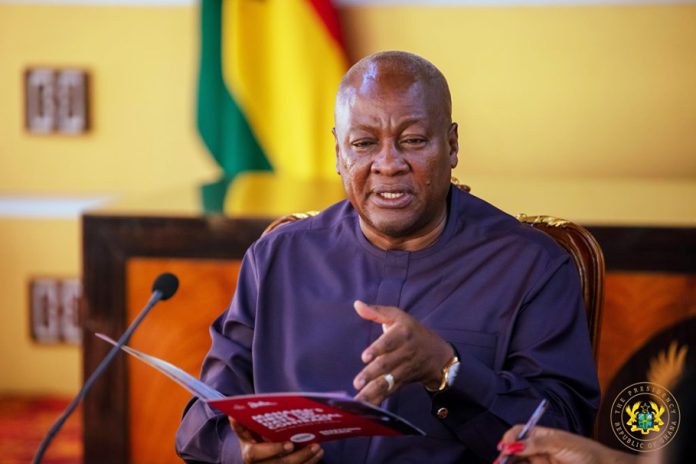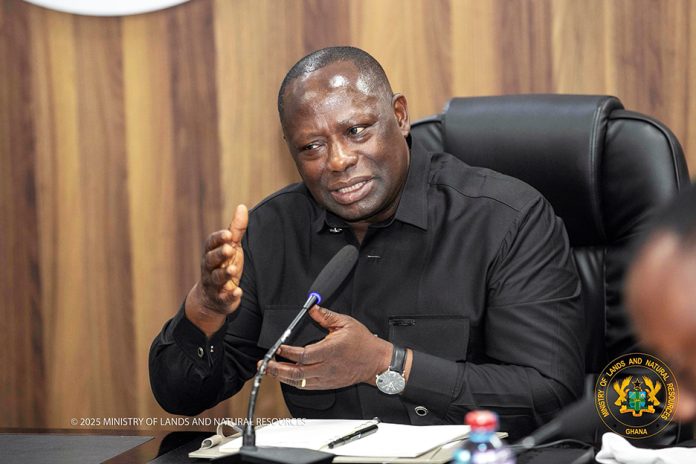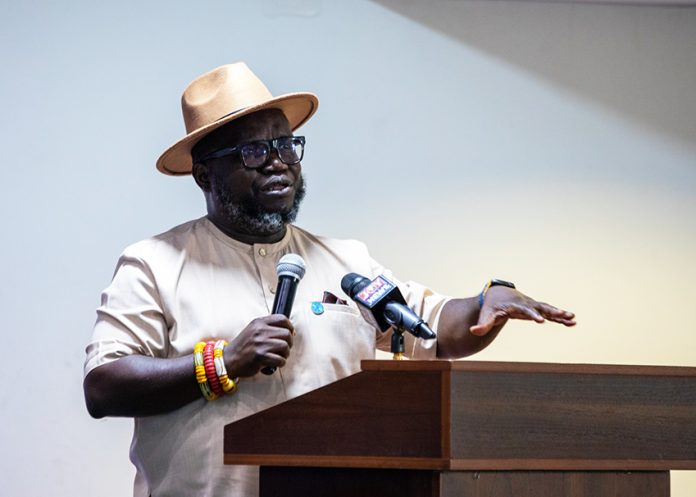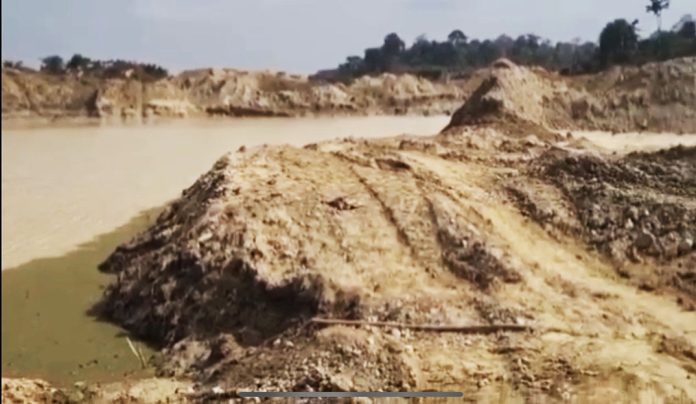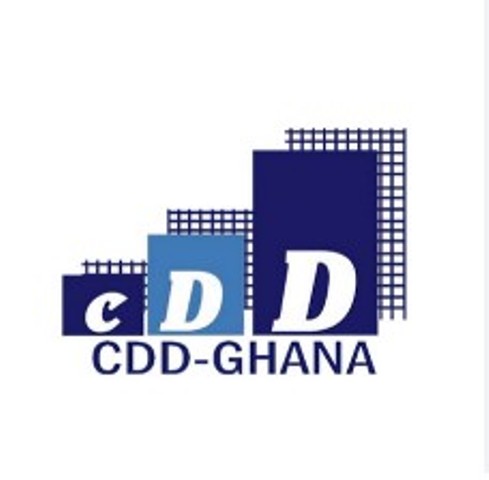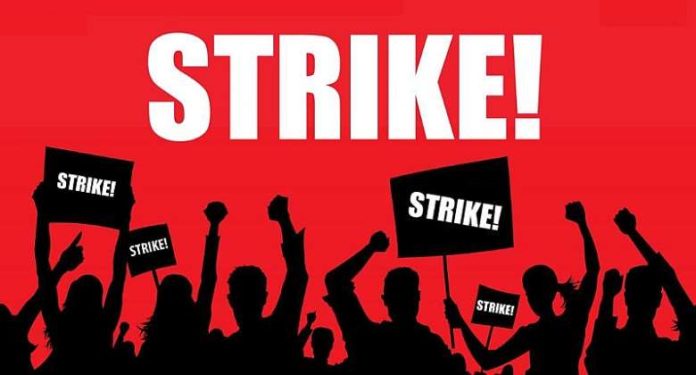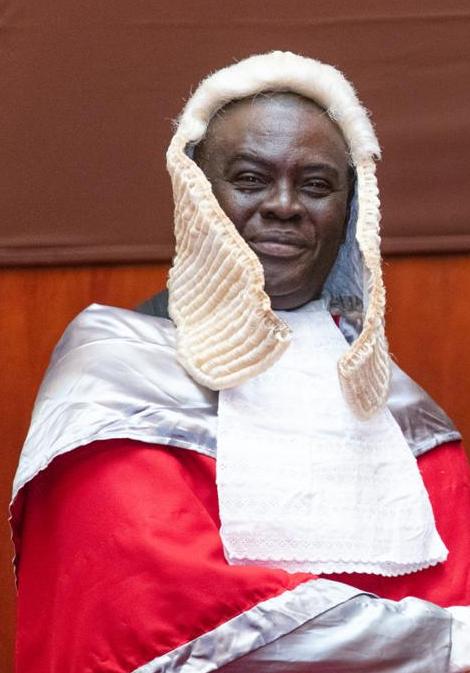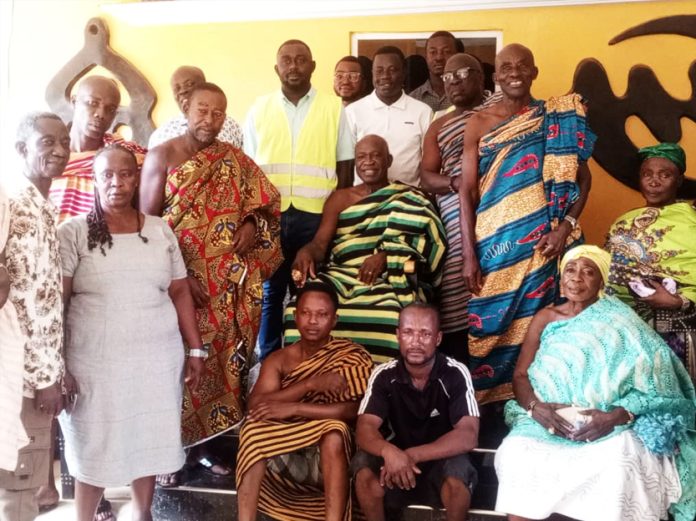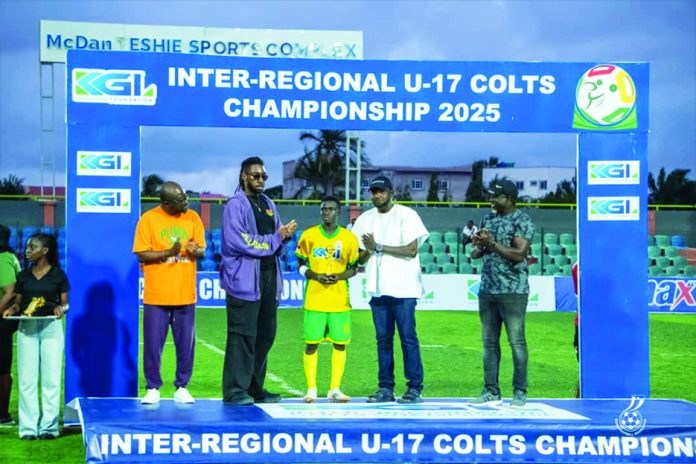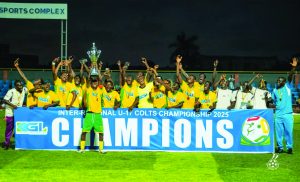The Paramount Chief of the Dormaa Traditional Area, Osagyefo Nana Agyemang Badu II, who also serves as Justice Daniel Mensah of the Appeals Court, has observed a reduction in the destructive effects of illegal mining, known locally as galamsey.
Speaking to journalists at the Jubilee House, following his swearing-in, alongside 20 others as a Justice of the Court of Appeal, Nana Agyemang Badu II praised recent efforts to clamp down on the practice.
“Galamsey, the illegal mining, did not start yesterday. It has been with us for some time. If you ask me about my assessment, I would say now, it is going down. You know why I’m saying that? If you look at some of the steps that have been taken… before, we were not hearing about the people in blue, the water guards and all that. We were not hearing all that.”
He recalled how, prior to President John Mahama’s administration, illegal miners could freely access protected lands.
“People have invaded the forest reserve. We’re not seeing that [anymore]. Before this regime came, I know for a fact, because of the work that I do, nine forest reserves had been taken over. Now, that situation has been kept down. I wouldn’t sit down here and say that galamsey is gone. It is still with us.”
Despite acknowledging improvements, the traditional leader called on his fellow chiefs to actively support the national effort to eliminate the menace.
“I want to encourage whoever is in charge, the Minister for Lands, Government and the people of Ghana, we should ensure that we nip this situation in the bud.
“Sometimes I’m not in Dormaa, but I want to assure the people that once you’re in that area, be sure that one day you’ll be caught. And you know the punishment? Minimum 15 years. You have to do that.”
He stressed that the environment remains the only inheritance passed on by Ghana’s forebears and must be protected.
“So I’m calling on all Ghanaians. This is the only thing that our ancestors left for us. We don’t have to destroy the water bodies. We don’t want to destroy our cocoa farms. We must ensure that we do farming in the right way so that we can all be happy as Ghanaians.”
No Need for State of Emergency
When asked by the media whether the situation warranted a state of emergency, the Dormaahene disagreed.
“No, no. It has not come to that. Let’s look at how much we gain in respect of mining. I mean, once you declare a state of emergency, the question is, who can do [the mining]? If we are not able to get that resource, there will be a gap. How is government going to [fill that gap]?”
He added: “As for mining, nobody argues that there shouldn’t be mining. But it has to be mined responsibly. That is the whole thing. People are doing that. I’m saying we are destroying ourselves.”
He urged traditional leaders not to shy away from enforcing environmental protection.
“We, the chiefs, should not say we don’t have the power. If somebody could do it in the tradition—not allowing people to mine, why can’t you do it?
“If you come to me, I will arrest you and give you to the police. I want to appeal to everybody, they should ensure that people do not engage in galamsey. If you do it and are arrested, it will not be good for all of us.”
Acknowledging Mahama’s Charge to Judges
Justice Agyemang Badu II also acknowledged the counsel offered by President John Dramani Mahama to the newly appointed judges of the Appeals Court.
“He was candid with us about the expectations that the Ghanaian people have made of us. I have been on this job for 28 and half years. So, having been on the bench, we know how we deal with cases.”
He affirmed the president’s call for speedy adjudication and access to justice for all. “He has trusted us to ensure that cases do not delay.
“We should ensure that justice is dispensed to all men and women, no matter their background. It’s a huge responsibility. But I want to assure the public that we dare not fail.”
“We will work together with the Chief Justice of the Republic of Ghana as by law established. Together, we will put in maximum effort to ensure that justice is dispensed.”
Rejects Claims of Court Packing
Responding to criticisms that the Jubilee House is “packing the courts” with friendly judges, Justice Agyemang Badu II dismissed the notion outright.
“I’m not too sure about what you have seen in the trend. I have to say, if I use my case as an example, for the first 13 years in my life, I moved two places as a High Court Judge.
“For 15 years, I have been at one place. So, to say somebody is packing the court… today, I was the High Court Judge representing the High Court on the Judicial Council.”
He emphasised the need for more judges across all levels of the judiciary to help clear backlogs.
“Each one of us, about 21, has our own competencies and strengths. If you look at the number of cases and the backlog, there is a need to ensure that judges come on board at all levels, Supreme Court, Court of Appeal, High Court.”
He also addressed perceptions of political favouritism in appointments: “Once you have the necessary competence and you have been there for some time and are elevated, to suggest that you have close relations with the head of state and that your appointment is a reward, it is not right. The President appoints on the advice of the Judicial Council.”
I Earned My Promotion
“I believe that if I was not competent, if I have not been there long, if I don’t have the competencies… out of 142 judges of the High Court, if I’m representing them as the senior most, it tells you something.
“If [President Mahama] has come to see that we have enough competence and he has appointed us, I don’t think people should look at it negatively. He was in office before 2016 and didn’t do it. If he is doing it now, it means this is the right time.”
Citing his track record, he said: “I’ve been a High Court judge since 2010—for 15 years. If I’m getting this recognition now, it’s good. I wish that criticism would not come, because that is custom.”
He concluded with a call for fairness from the media: “Let me be blunt. I want people to go and check 2007, 2011, 2017, 2020, 2021before I joined in.
“All these things are verifiable. Judiciary is different. And the Chief Justice is different. I have been on this path for almost 26 and half years.”
For more news, join The Chronicle Newspaper channel on WhatsApp: https://whatsapp.com/channel/0029VbBSs55E50UqNPvSOm2z

